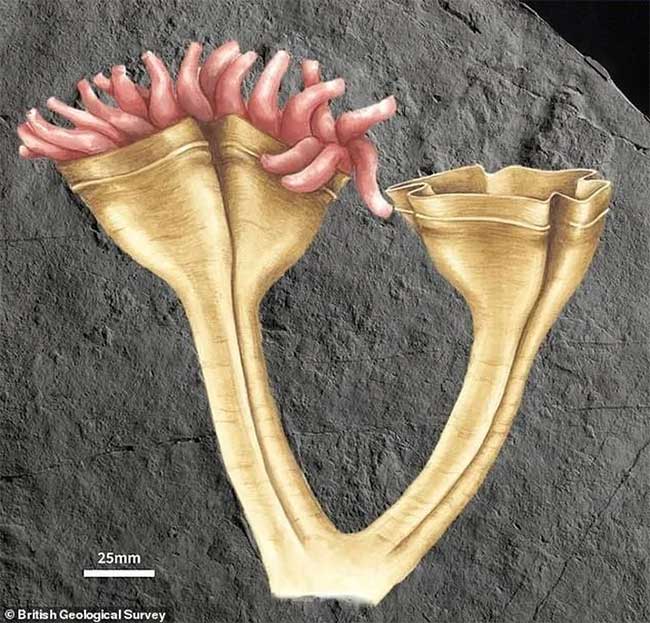A 560-million-year-old fossil of a primitive jellyfish, named after the British naturalist David Attenborough, is believed to be the first predator on Earth.

Fossil specimen as seen by an artist. (Source: British Geological Survey).

Dr. Phil Wilby, a British paleontologist, is one of the scientists who made the latest discovery. (Photo: PA).
Known as Auroralumina attenboroughii, this primitive jellyfish was discovered in Charnwood Forest, near the city of Leicester in central England.
Researchers state that this is the first specimen of its kind and represents the earliest known organism with a skeleton.
According to Dr. Phil Wilby, a paleontologist at the British Geological Survey, researchers have generally believed that modern animal groups such as jellyfish emerged around 540 million years ago during the Cambrian explosion.
“However, this predatory creature existed 20 million years earlier. It is the earliest skeletal organism we know of,” Dr. Wilby noted, emphasizing that this specimen, along with future discoveries, holds the key to understanding the onset of complex life on Earth.
The study indicates that the fossilized organism is related to a group that includes corals, jellyfish, and sea anemones that still exist today. It possesses a skeleton with numerous tentacles that could move through the water to capture food.


















































